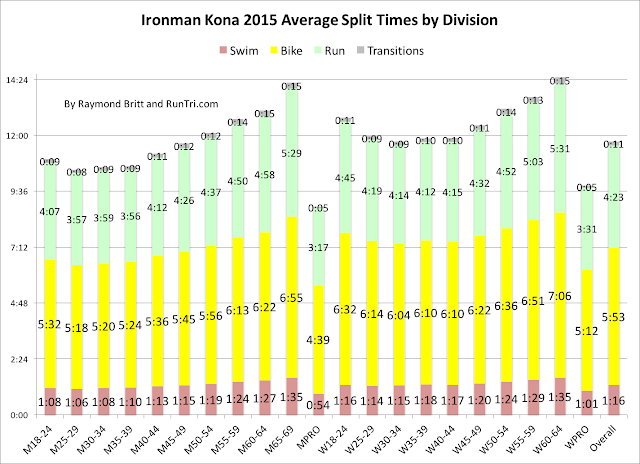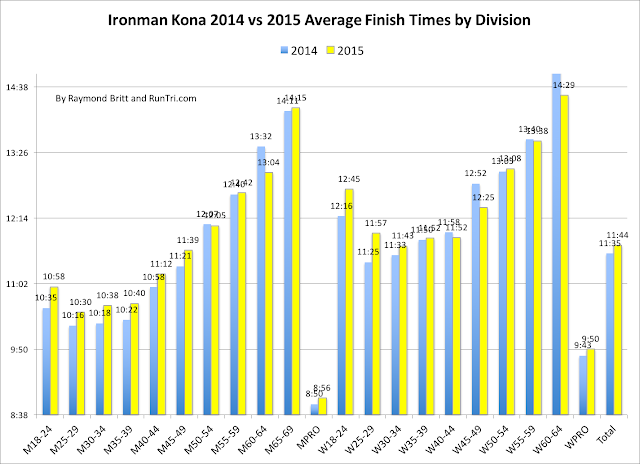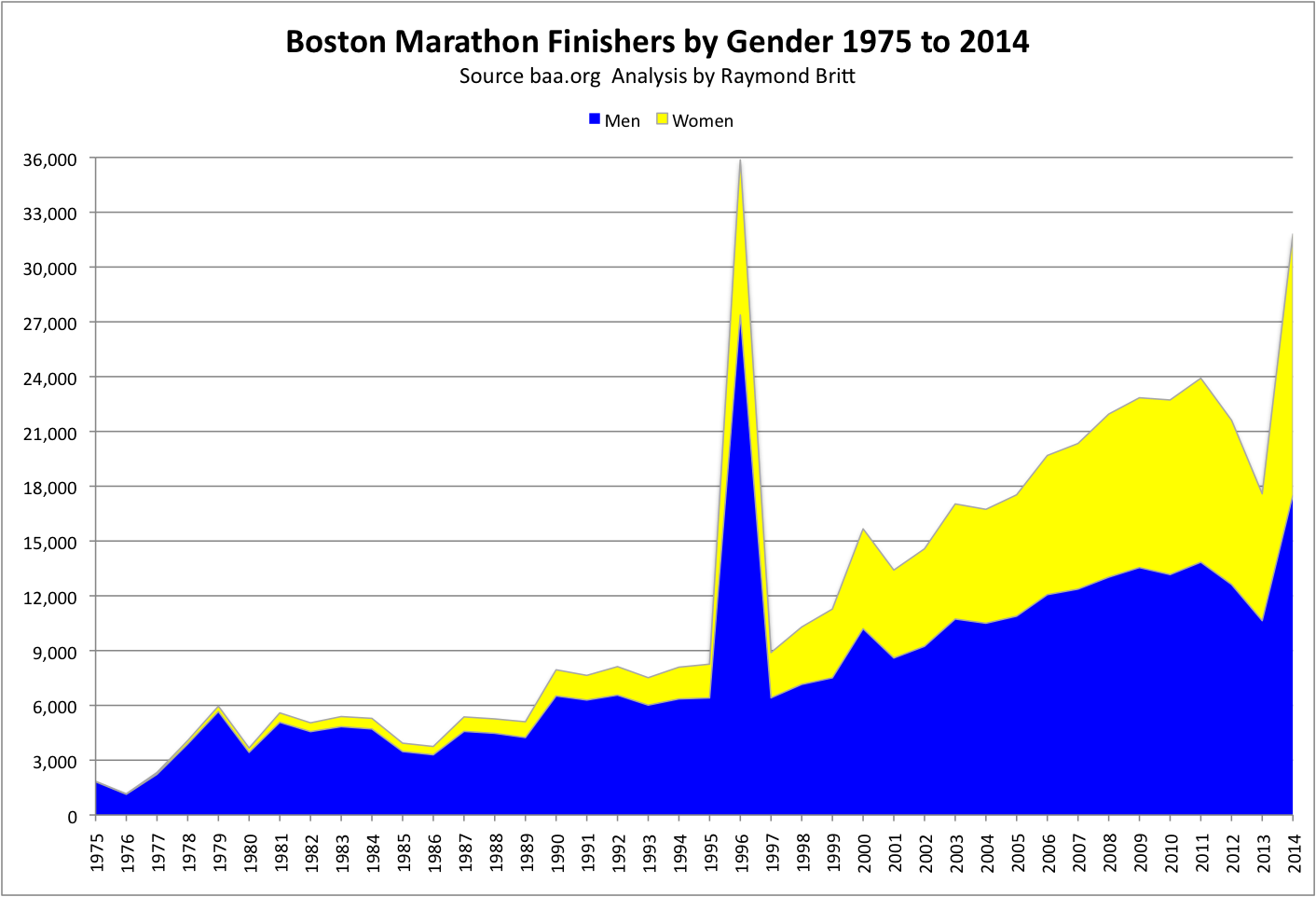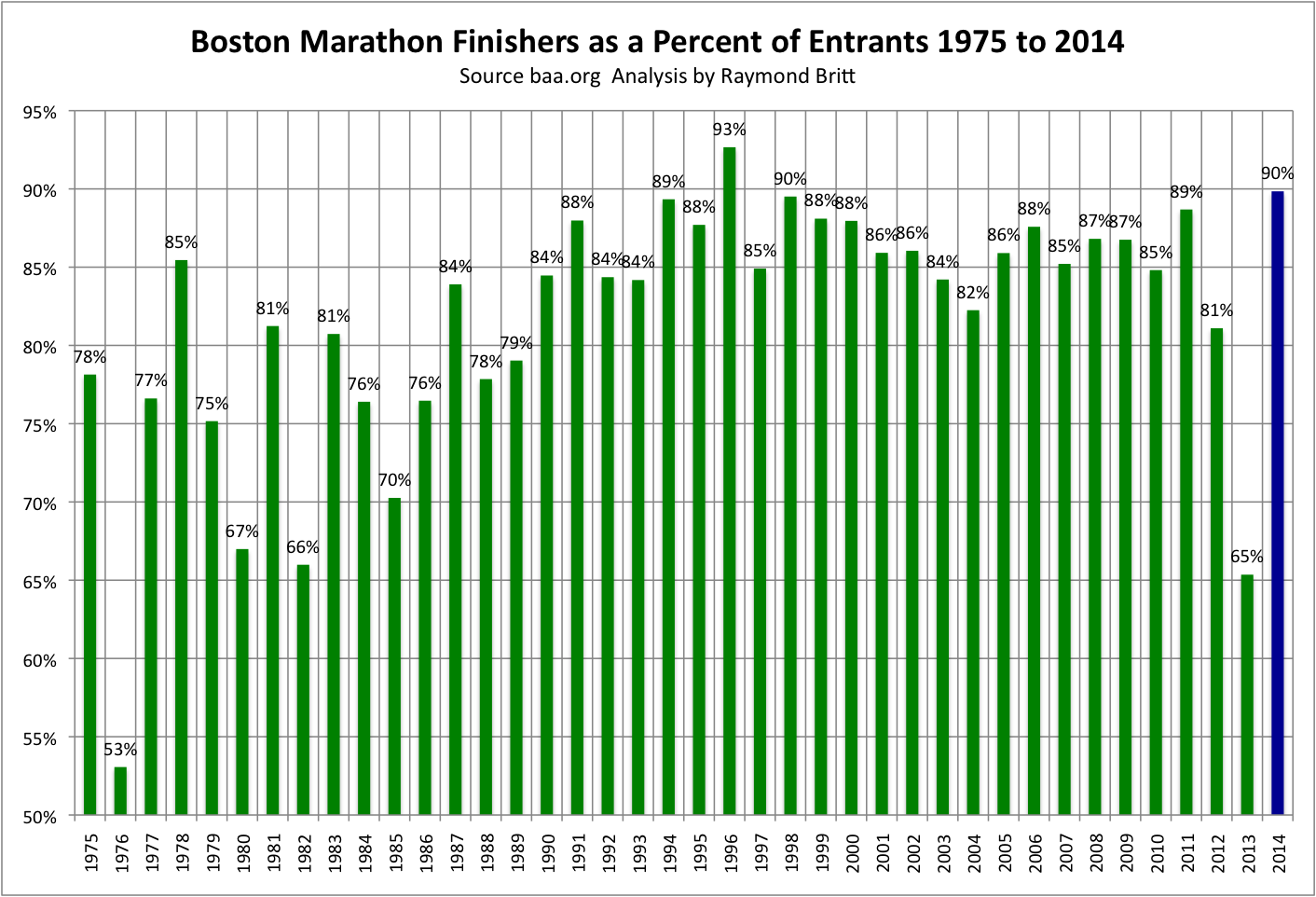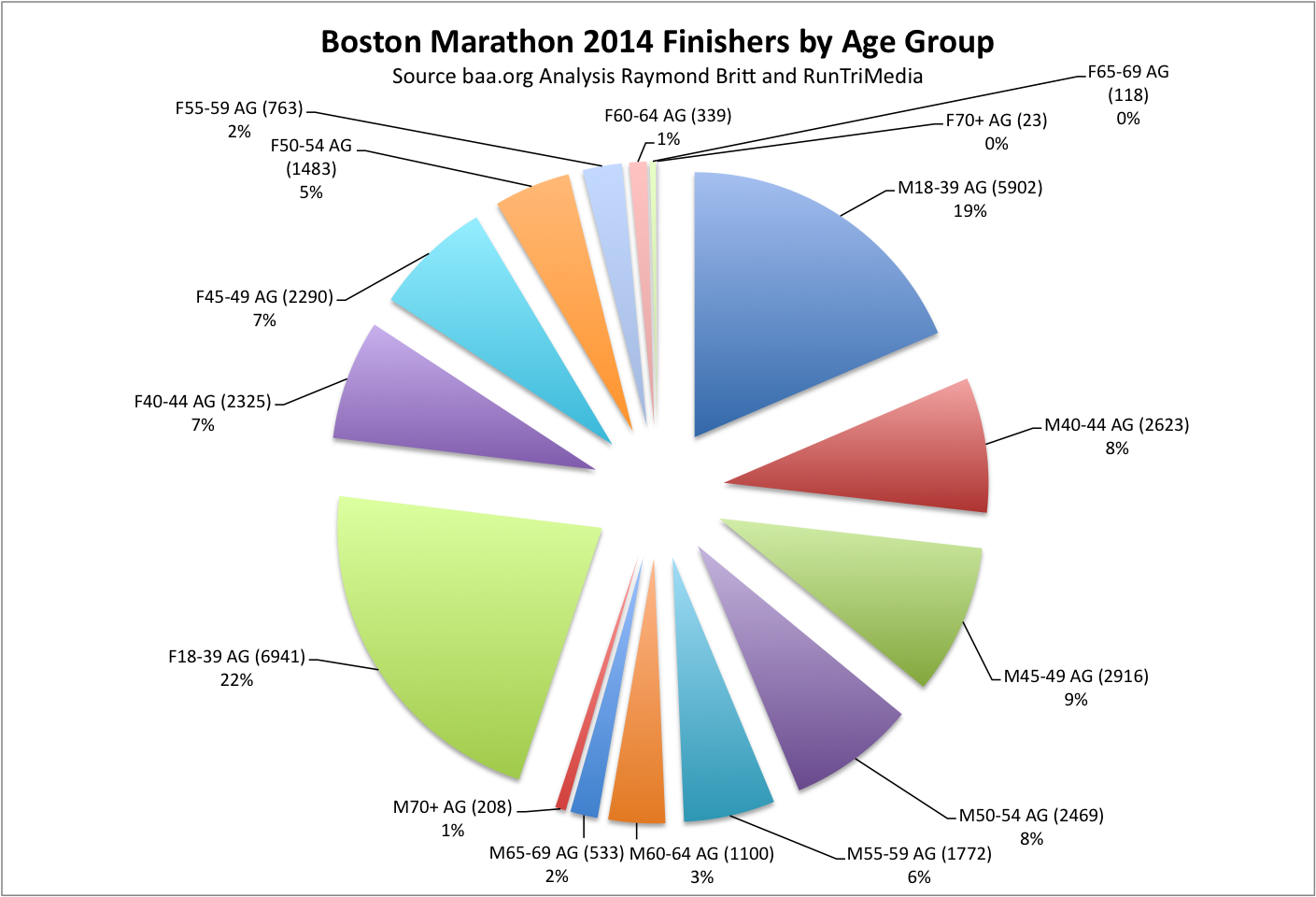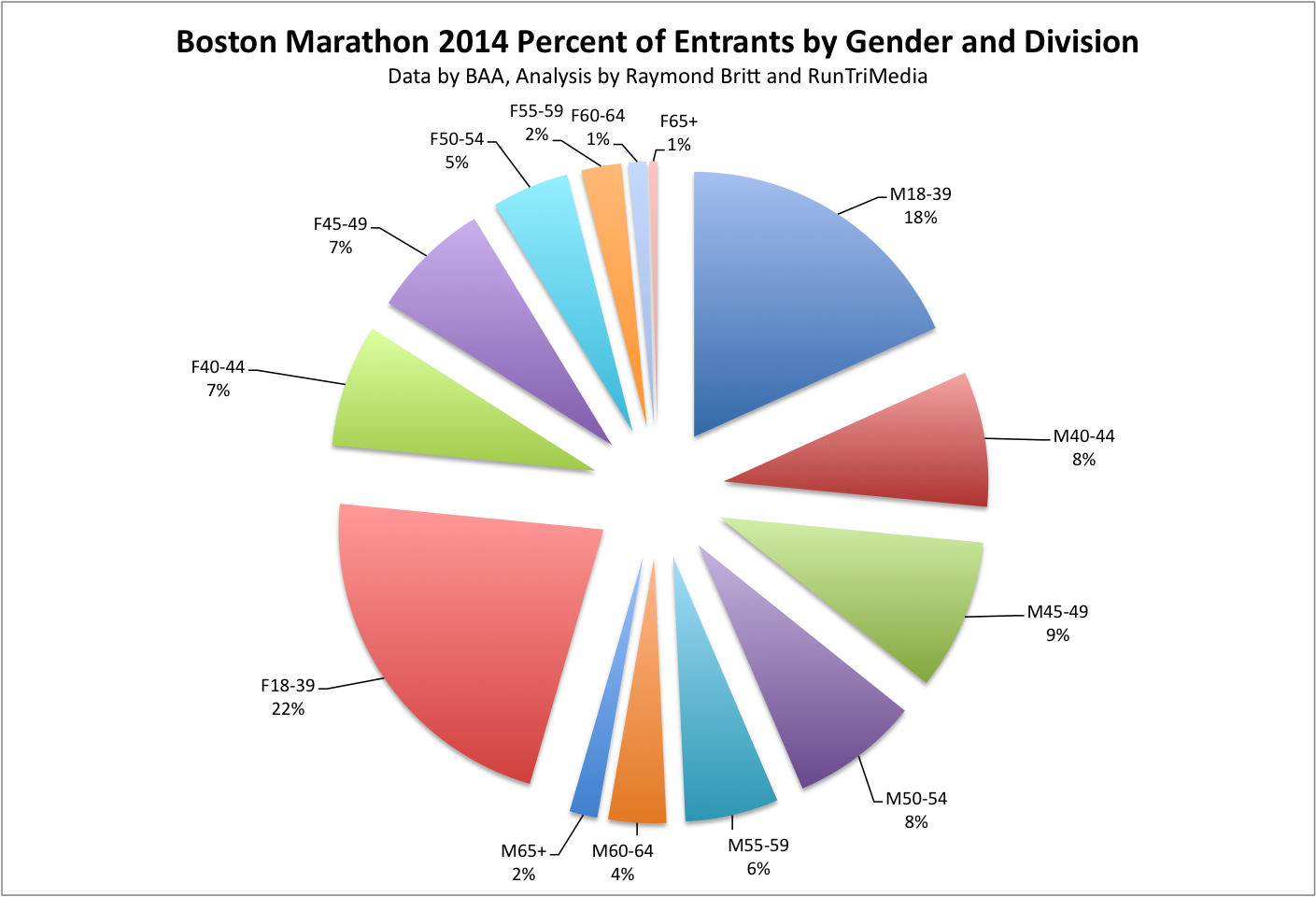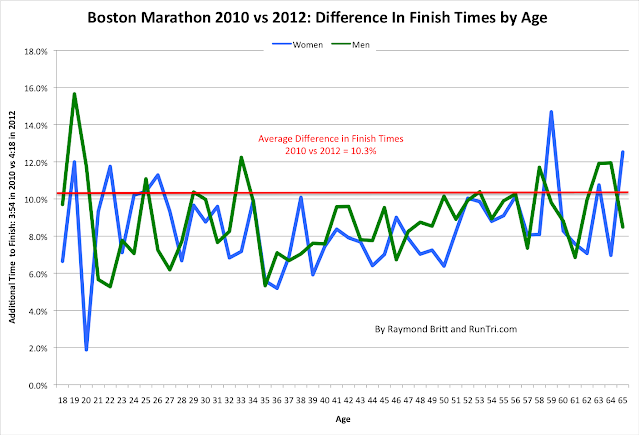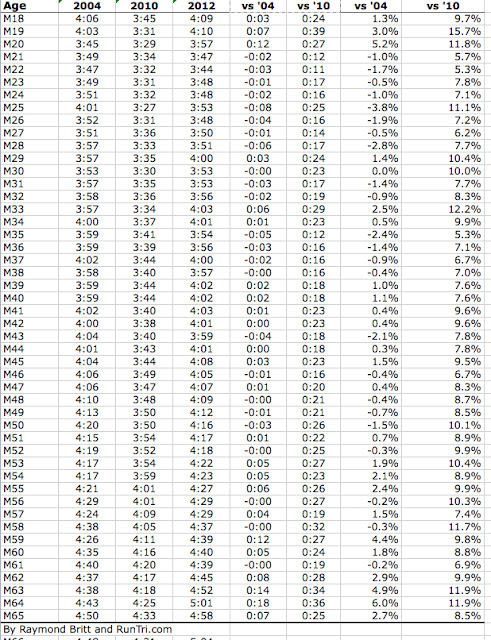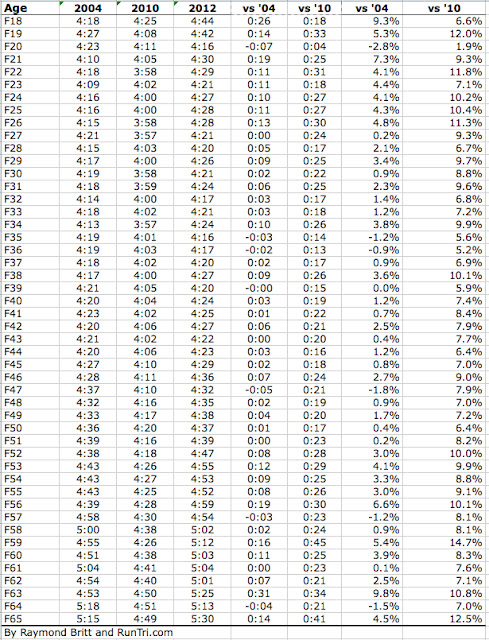By Raymond Britt
The 2015 Ironman Triathlon World Championship proved once again to be one of the most exciting, challenging, unpredictable and majestic in the world of endurance sports. This year lived up to these elements, with surprise first-time winners, a record number of starters and finishers, a higher than average finish time (overall and by age group).
Our initial analysis of the somewhat more comparatively difficult 2015 race is below in thirteen charts. Here are just some the highlights:
- Starters: Most in Ironman History: 2,370, 12.3% over 2014, and most since at least 2002
- Finishers Most in Ironman History: 2,000+, 10.8% growth over 2014, most since at least 2002
- DNF rate, 6.7 vs 6.0% in 2014, and only topped in years 2004 and 2009 since 2002
- Average Finish Time for all Finishers: 11:44, other than 2004 lowest going back to 2002
- Average Overall Splits: Swim 1:16 (11%), Bike 5:53 (50%), Run 4:23 (37%), Transitions 0:11
- Splits for each race division are shown, and by and large, reveal a similar pattern vs overall
- Comparing Splits 2009 to 2015: the 5:53 bike is about average, but the 4:23 run is worst
- Finish Times by Division 2014 vs 2015: notably slower in typically stronger divisions 30s-40s
- Total Finishers, Growth 2013 to 2015: new trend vs a many years of limits around 1800
- DNF Rates for each Division 2014 vs 2014
- Correlation Between Bike snd Run Splits for each athlete plotted on a single chart that illustrates the tendency of more athletes cycling too fast, followed by slower runs
- Division Comparisons (2 pages): Average Finish Times by age group 2009 to 2015
- Everything Else For all of our comprehensive Kona posts of past years, see www.RaceKona.com



